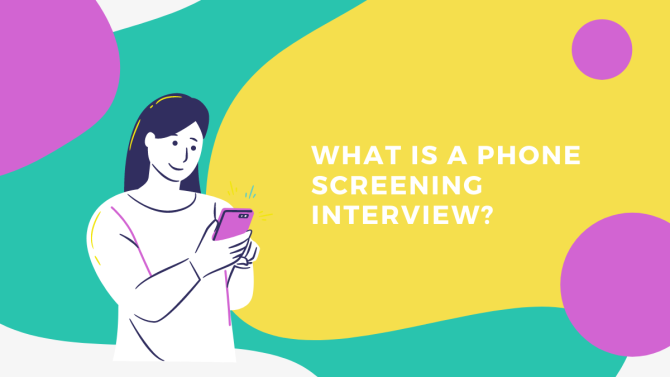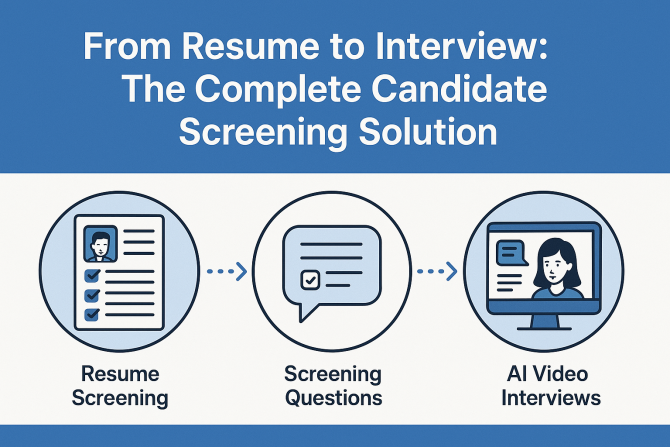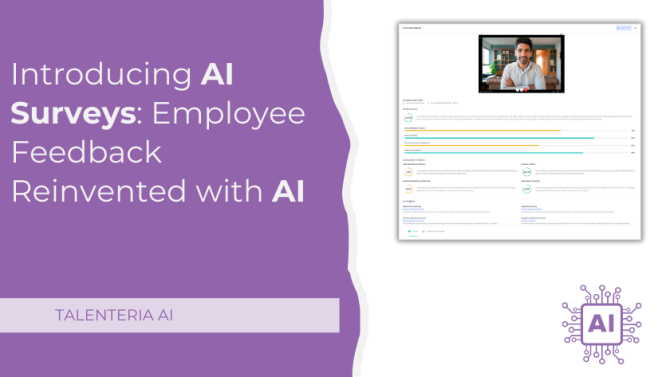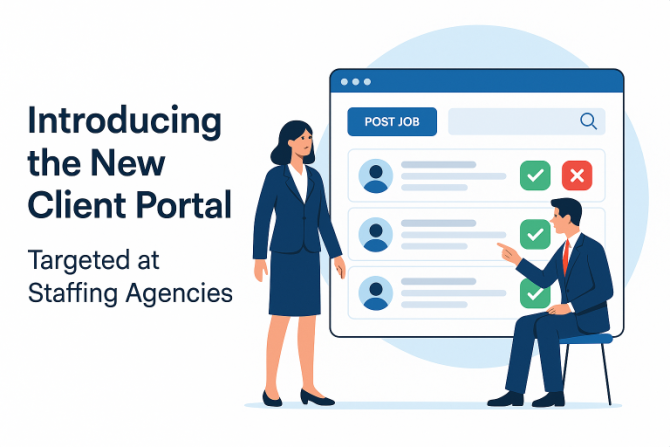
What Is a Phone Screening Interview?
If you are a recruiter or an HR manager, you certainly know what a good job resume looks like. You also understand that a well-structured resume with an exceptional cover letter may promise a lot but disappoint you once you meet the applicant in person. Making a shortlist of applicants who you want to proceed to the next step can play a crucial part in the recruiting process.
Time is money, which means you need to act both efficiently and strategically when narrowing down the search for potential employees. This is where screening interviews come to the scene: your goal is to learn more about the candidate's education and achievements, test their soft skills, and see how they handle a business conversation.
By the end of a screening interview, you want to make sure the candidate is not only qualified for the position but that they can also fit in your workplace culture.
Defining a Phone Screen Interview
A screening interview is a short interview to determine if a job applicant is qualified for a role. Generally, a screening interview is conducted in the first round of the hiring process. It consists of a brief overview of the applicant's background and work experience and a few additional questions.
Screening interview questions are usually related to the candidate's hard skills, achievements, and certifications. However, the recruiter might also want to know such details as their salary expectations or desired work schedules. As a result, the screening interview should determine whether the applicant will proceed to the next hiring process stage.
How Does a Screening Interview Work?
Screening interviews can be conducted over the phone, via video chat, or in person. However, having had a great experience in the HR industry, we at Talenteria have noticed that a screening interview is more likely to be conducted over the phone. A telephone interview like this is commonly referred to as a "phone screen."
A phone screening interview is usually pretty short and takes less than half an hour. Some recruiters won't even spend more than 10 minutes on a brief telephone interview. At this point, there is no need for open and detailed questions.
The purpose of a phone screen interview is to invite the applicant to visit the employer for an in-person interview in case the applicant has proved they are suitable for the role.
Stages of a Phone Screening Interview
A phone-screening interview can be broken into pre/post-stages, as well as the actual interview itself.
Pre-Screening Interview
As the name suggests, a pre-screening interview is a quick process that allows recruiters to get to know applicants before conducting an interview. During the pre-screening interview, the recruiter is only interested in learning more about the candidate and other necessary information required for this position.
Here the recruiter usually asks a few questions to gather some info, identify applicants with the greatest potential, and exclude candidates who fail to meet the basic requirements.
Pre-interviews can save recruiters time and streamline the screening process. It might take many forms, including questionnaires, videos, and phone calls. For candidates, it provides a clearer picture of the job.
Check out the list of 10 pre-screening interview questions that you may be willing to ask your potential employees:
- How do you hear about this opportunity?
- What exciting things have you done in your career?
- Why do you think this is the right move for you?
- What kind of work environment do you prefer?
- Do you like to be micromanaged?
- What do you think about our company culture?
- How do you typically manage projects and prioritize tasks?
- What makes a job fun and motivating for you?
- What's the deal-breaker for you, career-wise?
- How does this opportunity fit into the bigger picture for you?
Screening Interview
As we discussed earlier, a screening interview is a process of assessing how well an applicant meets a particular position's requirements. In a sense, it is an aptitude test that allows you to identify candidates who are best suited for the role you are hiring for.
We have also mentioned that screening interviews can be done in a variety of ways. You can send out the questionnaire to suitable candidates for a fair assessment, or you can choose to conduct a video or phone interview.
Post-Screening Interview
This is the final part of the screening process to help you select the right candidate. It is often just a formality, as you must have already identified the most suitable candidates for the job based on the assessment during the screening phase.
At this point, candidates should get to know other team members, especially the people they will be working with directly. It is also the time for them to get familiar with your workflows and any additional information they will have to learn as soon as they join your team or are selected for a role.
Requirements for a Phone Screening Interview
Since a phone interview does not allow you to see your potential employee face-to-face and read their body language, mimics, and gestures, it is important to be able to give your attention to verbal clues that may affect your final decision. With no proper preparation, a screening interview can easily go wrong and become an exhausting experience for both parties.
To avoid this, the recruiter, as the initiator of the call, should plan in advance what they want to talk about and ask the candidate about.
Determine What Really Matters
If you have to fill a position as soon as possible, you probably won't be chasing a candidate that requires a three-month notice period. Think about the needs of your company. Are you looking for an exceptionally experienced, relocation-ready graduate who is available right away? Or are you willing to be flexible to get the best candidate?
Read Their Resume
It is pretty obvious to a candidate that you have not read their resume. And certainly, nobody likes to not being taken seriously. So please take your time and read about their biography, education, skills, and experience. This is the only way to verify their information and get prepared to ask about gaps in their resume anyway.
Clear Your Mind of Bias
The purpose of a screening interview is to determine if a candidate deserves an in-person interview. Bias can reduce its effectiveness. If you are impressed with a candidate's resume and have already decided to invite them for the next interview, the call is unnecessary. However, if you did not like an applicant because of their resume or cover letter, you will most likely waste your and their time. So be objective to avoid the risk of making the wrong decision.
Be Prepared to Discuss
A phone screen interview is not just about candidates answering your screening questions. It is also a great opportunity to clarify some details about the role and the recruiting process for them. Make sure that the candidate fully understands what the job is about and what the next steps will be by the end of your conversation.
Screening Questions
Open-ended, in-depth, or technical questions should be left for an in-person interview. A candidate's skill set can also be determined through a job interview assignment or a test, which is useful to include in the recruiting process. So the purpose of a screening call is to give you access to basic information, which is a prerequisite for the next step.
The following phone screening interview questions can be easily changed depending on your industry and the open position.
The Basics
Phone screening interviews can be stressful for many people, so asking a couple of simple questions at the beginning of an interview may serve as an icebreaker and make the potential employee relax a little. Start it off easy for them, and you will get a better idea of what they have to offer:
- Could you tell me more about your background?
- Why are you looking for a new job?
- Where are you in your job search at the moment?
Availability and Flexibility
If you are particularly looking for a person to fill a position in Washington, you don't want to waste your time on a New Yorker who cannot relocate. Therefore, it is essential to ask questions on the applicant's availability and flexibility in the very beginning, since they can easily disqualify even the most suitable candidates:
- When can you start work?
- Are you willing to relocate?
- Are you legally authorized to work in this country?
Salary Expectations
Money can be an awkward topic to bring up — if not for you, then certainly for many candidates. But you want to know whether the candidate's salary expectations are in the ballpark of what you can offer.
Keep in mind that many candidates are not ready to give anything more than a salary range at an early stage. If you cannot clearly understand if there is a financial fit, you can return to this question later. But don't waste the candidate's time if you suspect there is a huge difference between their salary expectations and the budget you are working with. Tell them what range you are considering and ask if they are still interested in the job:
- How much would you like to earn in this position?
- Are there specific benefits that are important to you?
- What is your desired salary range for this role?
Candidate's Motivation
Many job seekers submit dozens of applications every single day. Well, this is quite normal for those who are actively looking for a new job. Although sometimes people might apply for a role that they are not really interested in. Questions about their current job as well as why they want to leave it can tell you how fit they are for the role you are trying to fill.
Nevertheless, this is also on you to wake the candidate's interest in the position and your company:
- What did you find most interesting in the job description?
- Why do you want to leave your current job?
- What motivates you in a job?
Knowledge of Your Company
Once a candidate is invited for a phone screening interview, it is fair to expect they have already done some research on your company. Surely you cannot expect them to have read your annual report or know your organization's entire history, but anyone who is more or less serious about the job you are hiring for should be well prepared for the interview.
- What attracted you to our company?
- What do you know about our products or services?
Resume Details
This is the part where you should give your candidates some space to talk. Their answers are likely to take up most of the scheduled time.
An applicant's resume may meet the minimum requirements, but it may still have some gaps or certain concerns. Ask the candidate what they hope to get out of the job – and how they see their contribution to the role and the organization. Do they have the necessary skills, experience, and flexibility? Listen carefully to their answers, which, ideally, should be clear, honest, and reasonable.
- Could you tell me about this three-year gap in your resume?
- What skills have you recently gained or strengthened?
- How would you feel about changing industries?
Start Implementing Screening Interviews
At first glance, phone screening interviews can seem overly bureaucratic and time-consuming. Nonetheless, in reality, conducting a screening interview with a potential candidate will help you achieve more, get the most out of the recruiting process, and reduce the risks of hiring people who aren't qualified.
In the article above, we have shared details on what screening interviews are about, why they are so useful, and how they could be conducted most efficiently. Whether you choose a phone interview, a video screening, or a questionnaire screening, online techniques can significantly save your time during a hiring process and maximize the chances of finding the perfect job candidate. For more tips on the hiring process, keep an eye out for more Talenteria blog posts.





